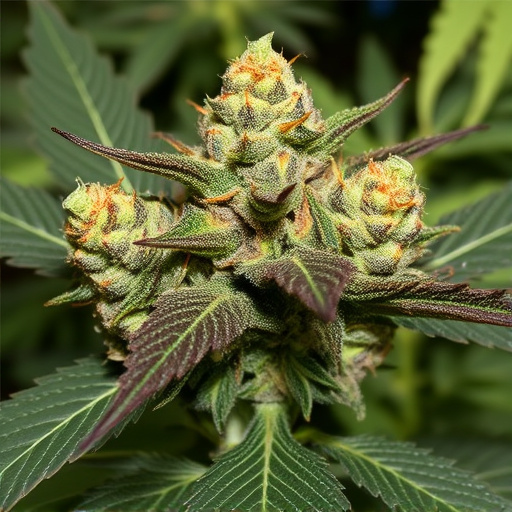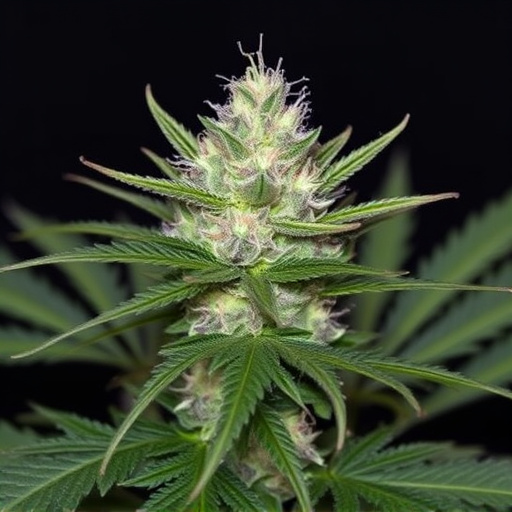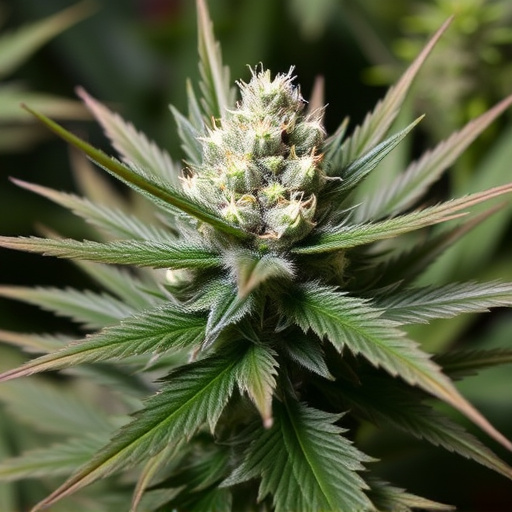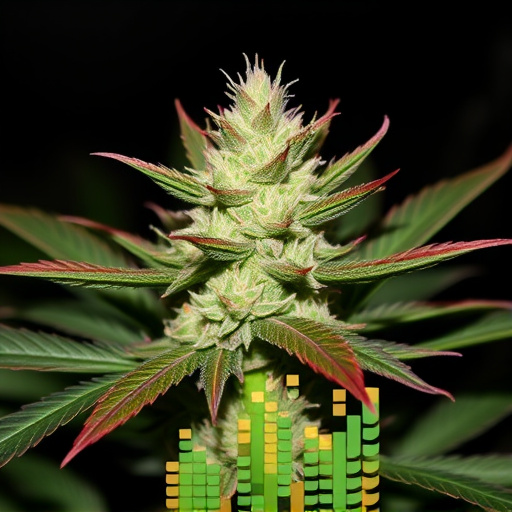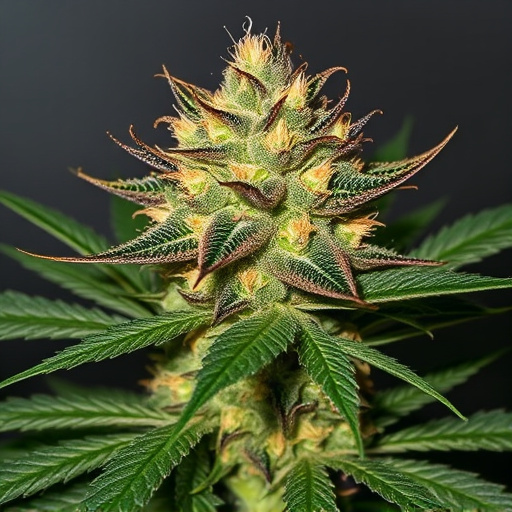The medicinal properties of cannabis flower from Cannabis sativa are determined by its cannabinoid (like CBD and THC) and terpene profiles. Different best cannabis strains offer distinct benefits, with high-CBD strains treating pain and inflammation and high-THC strains helping with appetite, sleep, and nausea. Terpenes further enhance these effects. Legal restrictions challenge access and research, but clinical trials are exploring cannabis for chronic pain, anxiety, and neurological disorders. Future research aims to develop tailored best cannabis strains with higher beneficial cannabinoid concentrations and better understand cannabinoid-terpene interactions for personalized treatments.
“Unraveling the medical potential of cannabis flower is a growing area of interest in modern healthcare. This natural compound has garnered significant attention due to its diverse applications, offering hope for various health conditions. From chronic pain management to potential anti-inflammatory properties, understanding cannabis’ unique attributes is key. In this article, we explore the science behind the plant, delve into the best cannabis strains for specific ailments, and discuss legal considerations while shedding light on exciting research avenues.”
- Understanding Cannabis Flower and Its Medical Potential
- Best Cannabis Strains for Specific Health Conditions
- Navigating Legalities and Future Research Directions
Understanding Cannabis Flower and Its Medical Potential
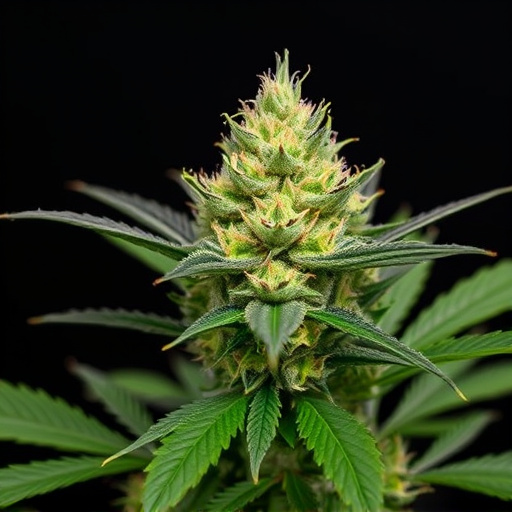
Cannabis flower, derived from the plant Cannabis sativa, has long been known for its diverse medicinal properties and potential to alleviate various health conditions. It is not just a recreational substance but a rich source of chemical compounds called cannabinoids, including THC (tetrahydrocannabinol) and CBD (cannabidiol), which have gained significant attention in the medical community. These cannabinoids interact with the body’s endocannabinoid system, playing a crucial role in regulating various physiological processes.
Understanding the unique attributes of different best cannabis strains is essential to harnessing their medicinal benefits. Each strain possesses distinct cannabinoid profiles, terpene compositions, and effects, making them suitable for specific medical applications. For instance, strains high in CBD are often sought after for their potential anti-inflammatory, analgesic, and seizure-reducing properties, while those with higher THC content may be beneficial for pain management, appetite stimulation, and sleep disorders. With ongoing research, the medical potential of cannabis continues to unfold, offering hope for natural remedies in various fields of medicine.
Best Cannabis Strains for Specific Health Conditions
When it comes to medical cannabis, different strains offer unique profiles of cannabinoids and terpenes, making them suitable for treating various health conditions. The best cannabis strains for specific ailments are often selected based on their high levels of CBD (cannabidiol) or THC (tetrahydrocannabinol), or a balanced combination of both.
For example, strains rich in CBD are favoured for their anti-inflammatory and analgesic properties, making them beneficial for managing chronic pain, arthritis, and multiple sclerosis. On the other hand, high-THC strains may be recommended for conditions like severe nausea, appetite loss, and certain types of epilepsy. Terpenes, such as myrcene, linalool, and limonene, also play a role in strain selection, as they contribute to the aroma and potential therapeutic effects, further customising treatment options for individual patient needs.
Navigating Legalities and Future Research Directions

Navigating the legal landscape surrounding cannabis is a complex task, as regulations vary widely between regions and countries. This complexity creates challenges for both patients seeking access to medical cannabis and researchers aiming to study its potential therapeutic benefits. As more areas legalize cannabis for medicinal use, clinical trials are beginning to explore its efficacy in treating various conditions, such as chronic pain, anxiety, and certain neurological disorders. The future of medical cannabis research holds promise, with advancements in cultivation techniques leading to the development of best cannabis strains tailored for specific medical applications.
These innovative breeds offer a range of cannabinoid profiles, including higher concentrations of CBD (cannabidiol) or THC (tetrahydrocannabinol), which may enhance therapeutic outcomes while minimizing adverse effects. However, further research is needed to fully understand the complex interactions between cannabinoids and terpenes, as well as their impact on individual patients. By bridging these knowledge gaps, future studies could pave the way for more effective and personalized medicine using cannabis-based treatments.
Cannabis flower, with its diverse chemical profile and medicinal properties, offers hope for a wide range of health conditions. Understanding its various strains and their specific benefits is key to navigating this evolving field. The legal landscape surrounding cannabis continues to shift, opening doors for further research and expanded access. As we look ahead, ongoing studies on best cannabis strains and their applications will undoubtedly unlock new possibilities, enhancing the lives of those seeking alternative treatments.
